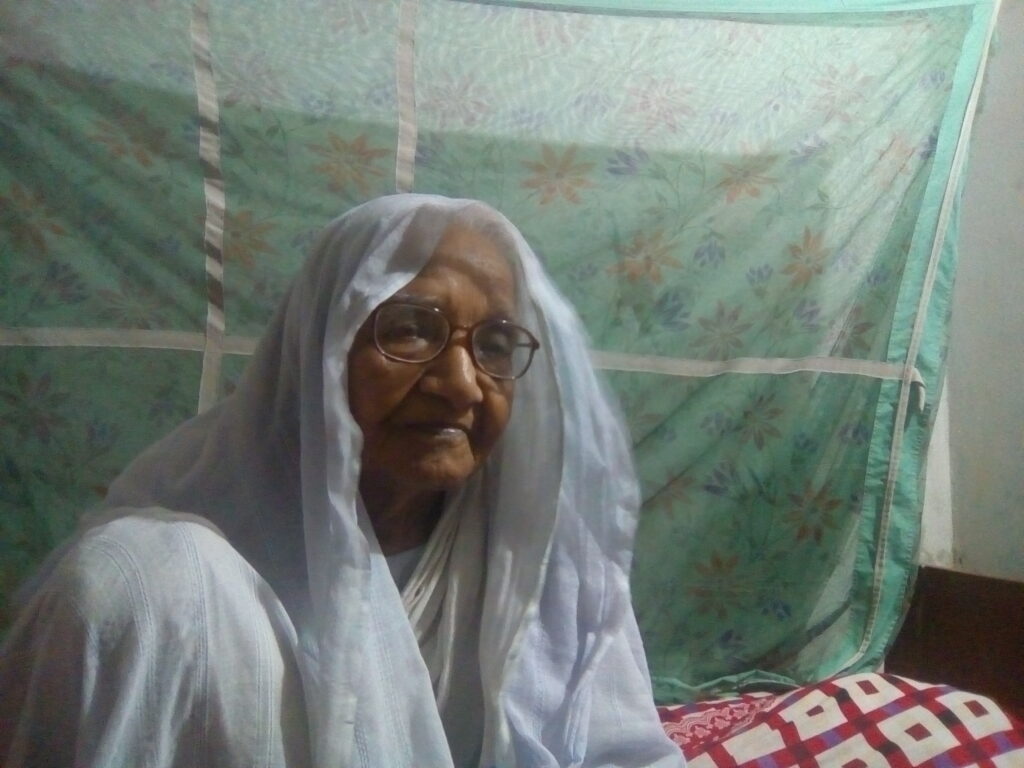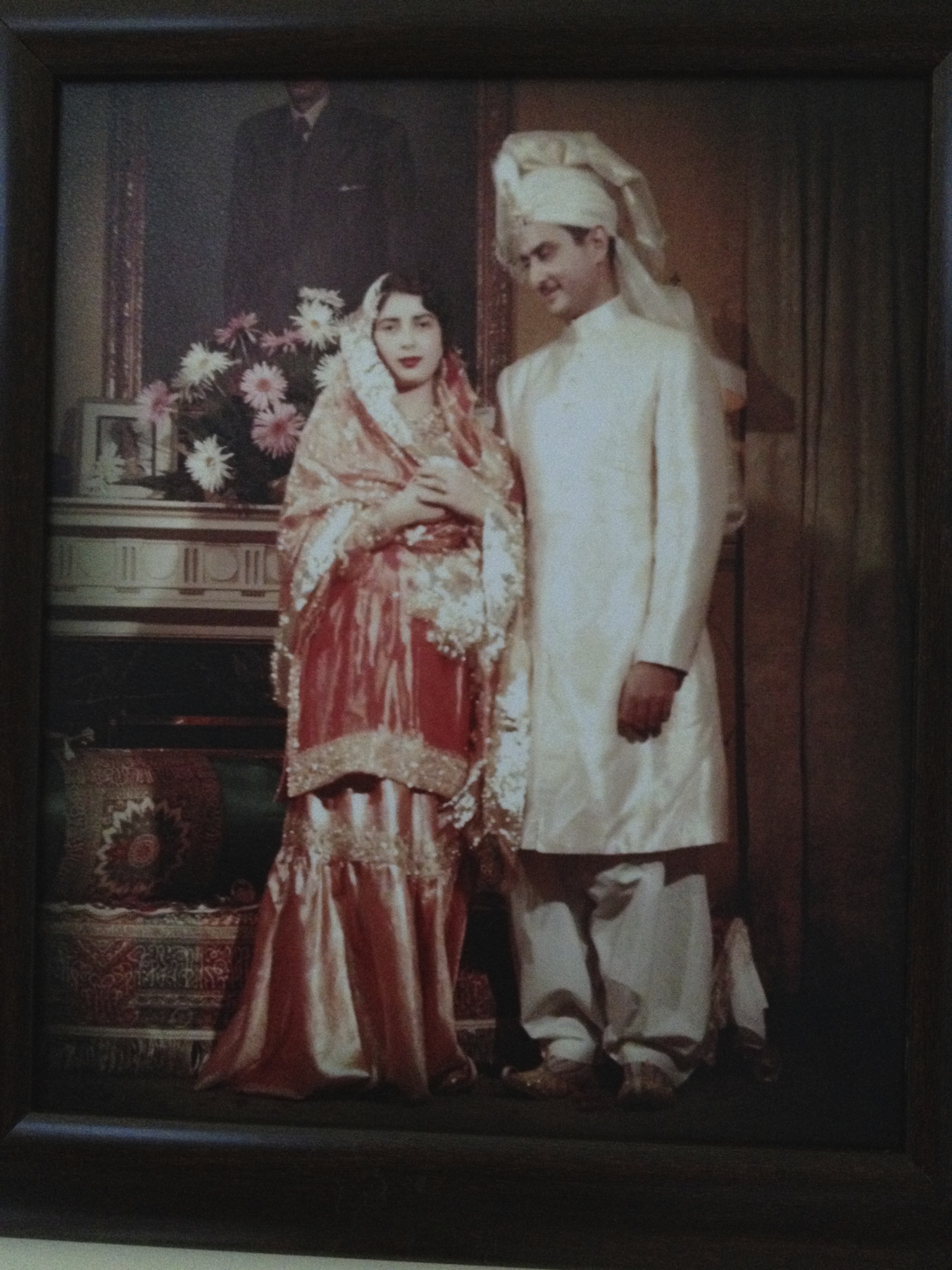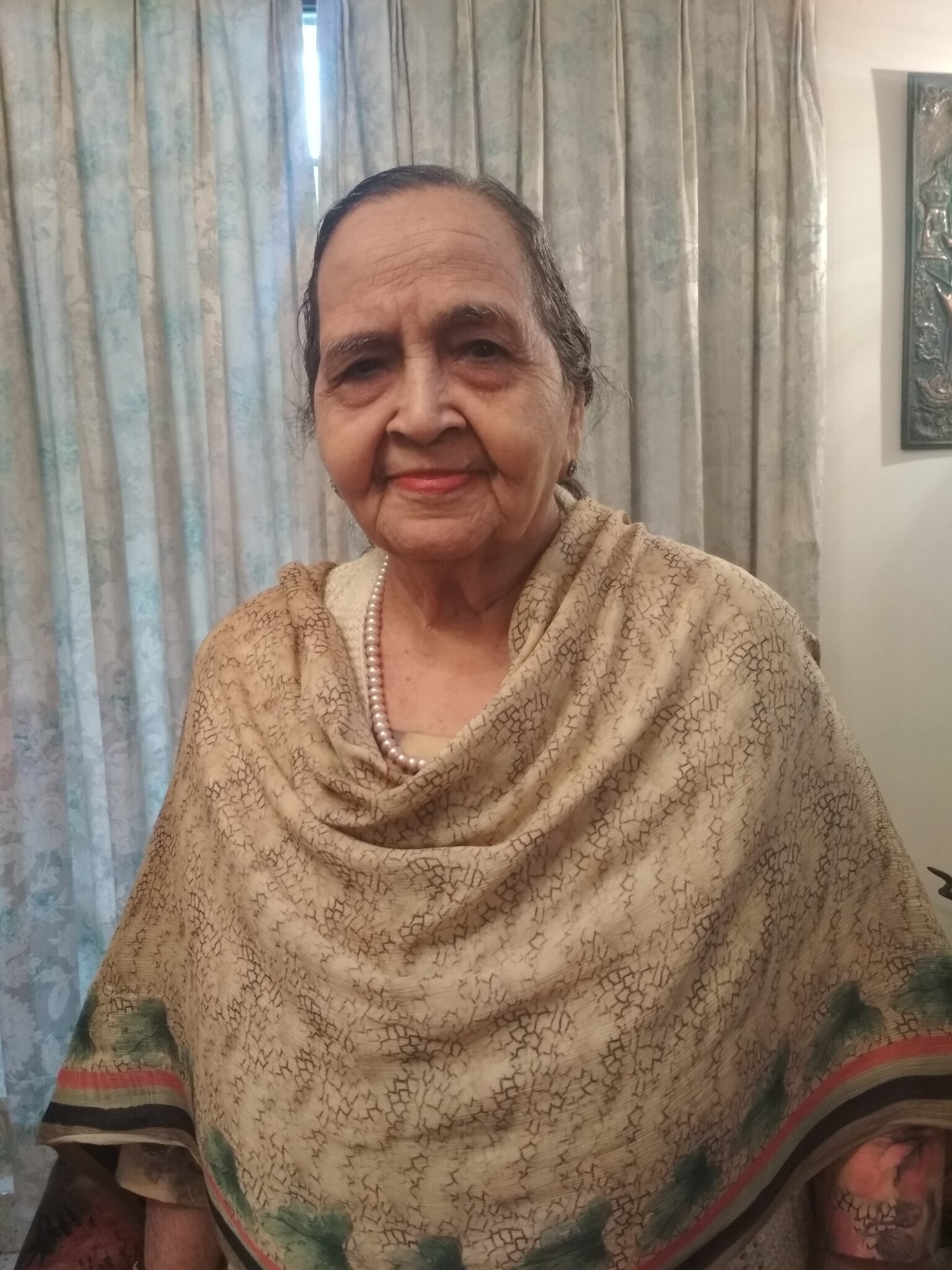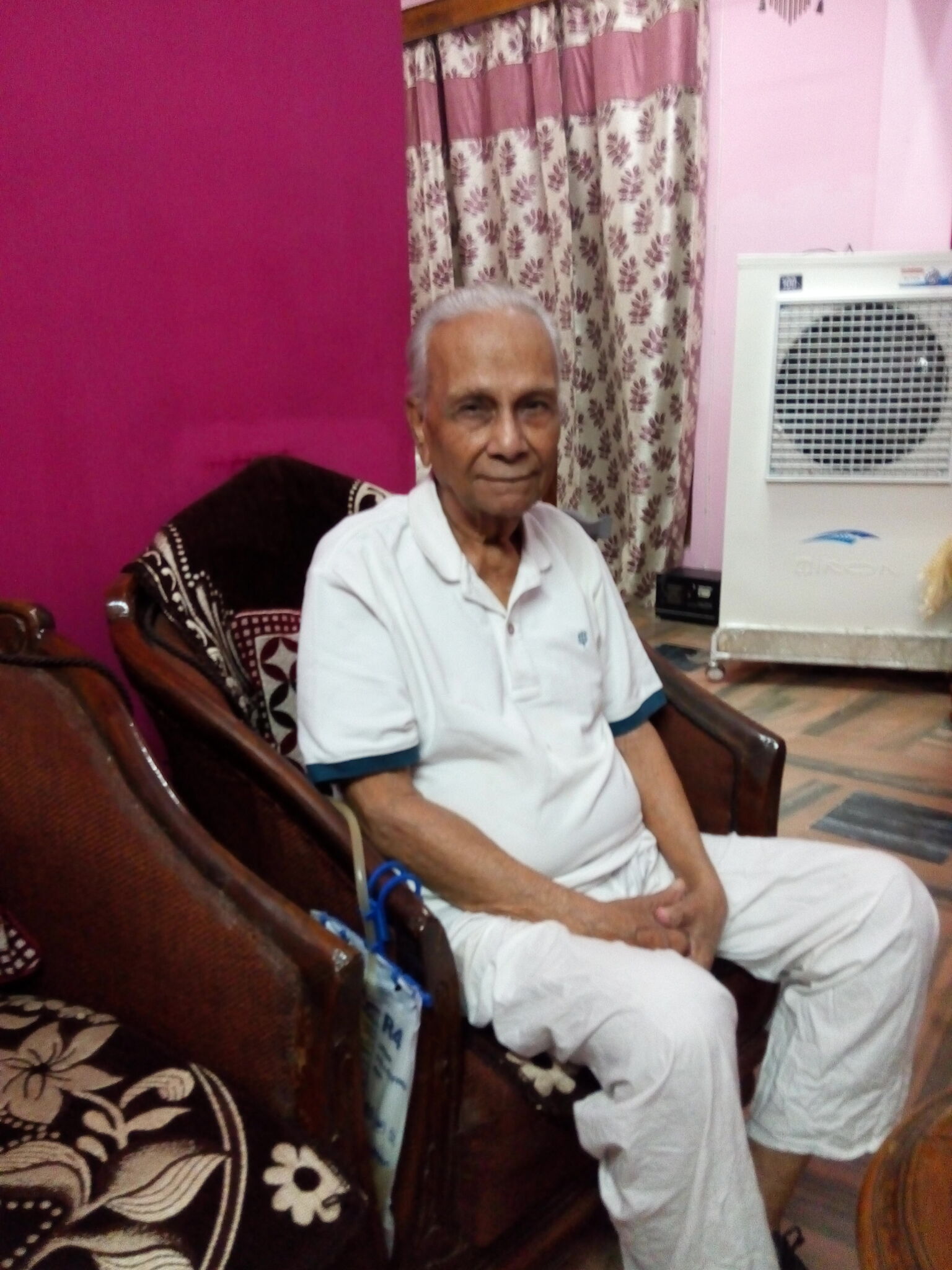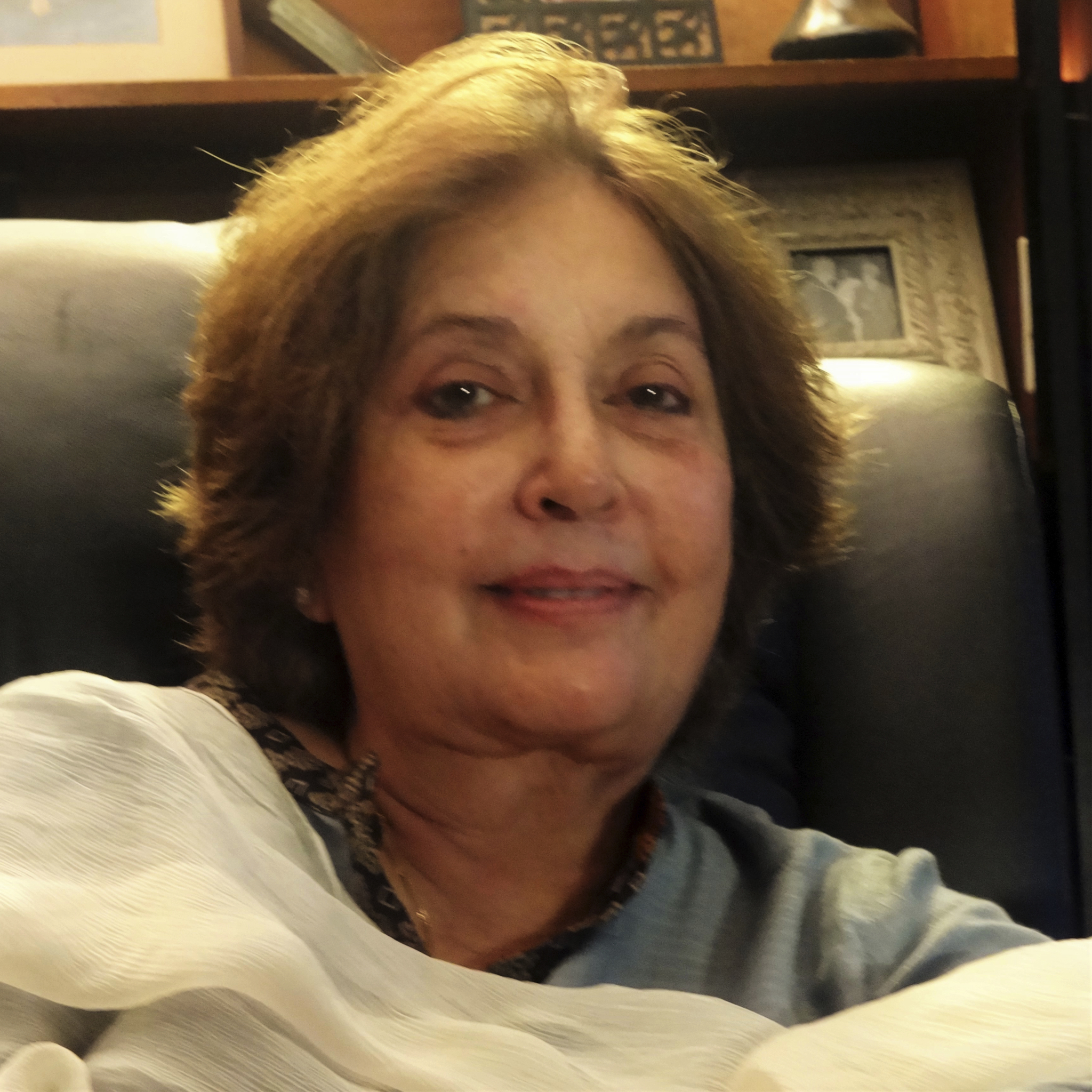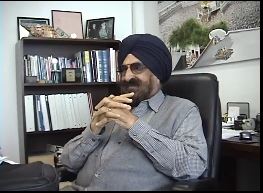Story:
My name is Feroza Khatun and I was born in 1934 in the village of Ghono Shyampur near the town of Godagari, in Rajshahi District. The house I lived in was large. My father was a rich farmer and my family’s expenses were paid by the land. My family practiced Islam, and we had good relationships with Hindu families. We lived together happily, experiencing no problems between communities. I was a mischievous child and loved to play with my friends. We collected fruits from our neighbours’ yards and I especially loved mango. I had a friendly relationship with my grandmother. During my free time, she told me many stories.
My school was far away from home and I went with my brother and sisters. During tiffin time (lunch), I had fun with my friends. We played kit-kit, kana machi, and other games. After coming home from school, I did more mischief and then I went out and talked with my cousins and friends. In the evening there was no opportunity to go out. I would spend the evening working on my school work with my siblings.
On Eid, my most interesting experience was going to the Eidgah (open-air enclosure used for Eid prayer) with my father. Then, he would buy me sweets, which I enjoyed very much. My mother prepared many tasty dishes like andhasha (a type of rice cake) which was my favourite, kheer (a dessert made with milk and rice), polao (a rice dish), and more. Some Hindu neighbours would come over to my house, and we entertained them with food. My father bought new dresses from town for them. I remember visiting the town by train. There was a special compartment for women passengers, and I was excited to see the Padma River. I came to town to see my ill grandmother who was admitted to the hospital. I didn’t like the town compared to my village. During puja (worship) I was excited to see Durga Murti. There was also loud music and everyone had fun with the music.
I married at a young age. I loved going to school and reading books, but after my marriage, everything changed. I hurt a lot from this. I was tasked to maintain a large family, and in my in-law’s house, I had a sister-in-law who was like a friend to me. Sometimes, we slept together and talked long into the night. She was my only friend in my in-laws’ home. Before Partition, I gave birth to a son. In 1947, I was at my father’s house when Partition happened. Many women fled from India and came to our village. Their conditions were unbearable; they cried loudly and said that their husbands and children were murdered. My father decided to help the women by sheltering them in his house and feeding them for almost seven days. My father organised the people of our village and arranged some land for them. The refugees began their new lives in our village. They were such good people and we had a good relationship with them.
I remember my sister who lived at her in-law’s house in India. After Partition, they fled during the night. Text to highlight (crop photo to make it fit): They exchanged houses with a Hindu family, so, when they came to Pakistan, they went to the house that the Hindu family was handing over to them as they began leaving for India. My sister tells me that her father-in-law noticed a bag that had remained behind. After opening the bag, he found many pieces of jewellery, and he quickly ran to give the jewellery to the Hindu family.
My husband passed away after five years of marriage. I struggled very much to bring up our two children, but they passed away too some years later. I have very bad luck. That’s why happiness does not stay at my house.

